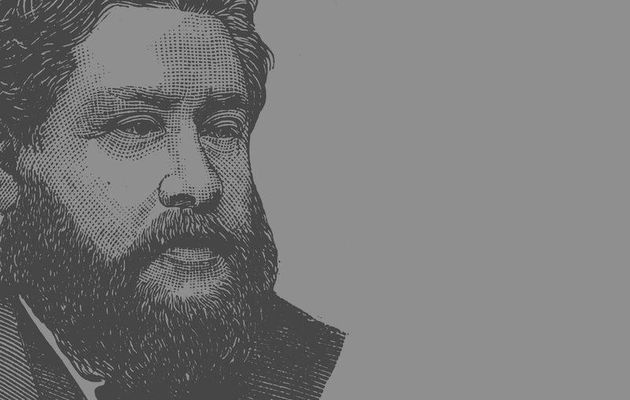The Prince of Preachers on the Holy Spirit.
 Charles Spurgeon. / The Gospel Coalition
Charles Spurgeon. / The Gospel Coalition
It’s that time of year again, folks. This very week back in 1892 the acclaimed ‘Prince of Preachers’ Charles Haddon Spurgeon passed onto glory.
Today, more than 120 years later, Spurgeon’s works are continuing to sell like hot cakes amongst Gospel-hungry souls.
In honour of his remarkable ministry, I wish to dedicate my weekly article to his legacy, drawing your attention to one of the great chapters included in Lectures to my Students entitled ‘The Holy Spirit in connection with our Ministry’.
Spurgeon’s comments are as applicable now as they were in the latter-half of the nineteenth century.
THE HOLY SPRIT IN CONNECTION WITH OUR MINISTRY
Spurgeon was concerned that his ministerial students not only confessed faith in the person of the Holy Spirit but that they enjoyed an intimate relationship of fellowship with Him.
In his lecture, the Englishman outlines eight key ways in which the Spirit may give aid to a preacher of the Gospel.
1.- The Spirit of knowledge
As a preacher, Spurgeon was a great opponent of sloth. He believed that ministers were to be students so as to instruct their flock. “We have urgent need to study, for the teacher of other must himself be instructed”.
He had no time for men who stepped into the pulpit without the required preparation time for the Spirit was only to bless diligent and studious pastors. The Spirit would point hard-working students of Scripture to Jesus Christ, making them effectual ministers of the Gospel in public.
2.- The Sprit of wisdom
Spurgeon was passionate about knowledge but also about wisdom. He urged his students to be sensitive to the Spirit’s wisdom, avoiding pet theological topics in the pulpit as the Lord gave the Bible for the whole counsel of God to be presented to His people.
Furthermore, wisdom has to do with the mode in which preachers share the truth of God with others. Different people need truth to be taught to them in different ways. “We should not hide truth for a moment but we should have wisdom so to preach it that there shall be no needless jarring or offending but a gradual enlightenment of those who cannot see it at all, and a leading of weaker brethren into the full circle of Gospel doctrine”.
3.- The Spirit of utterance
Every minister, in Spurgeon’s opinion, needs to experience the living coal from off the altar. His lips must burn with the urgency of the Word he is to expound.
To enjoy the help of the Spirit in public preaching, one should be much in private prayer seeking the blessing of the Lord. Without this precious outpouring of the Holy Ghost upon the herald of the Gospel, little spiritual good could be accomplished.
4.- The Spirit of the sermon
The minister not only needs the Word of God to be ablaze within his heart and upon his lips, but also for the Word to work powerfully throughout the entirety of his message. Preachers should expect the Spirit of God to work beyond the realm of the pulpit. The people in the pews need God’s refreshing as well.
The Spirit leads the preacher to speak in such a way as to affect the people and He also keeps the pastor in a devotional frame of mind throughout the message, “We need the Spirit of God, then, all through the sermon to keep our hearts and minds in a proper condition, for if we have not the right spirit we shall lose the tone which persuades and prevails, and our people will soon discover that Samson’s strength has departed from him”.
5.- The Spirit who affects
Preaching is a battle. Souls are at stake. Spurgeon was fully convinced that only the Spirit of God could regenerate lost hearts. Therefore, the preacher should never draw attention to himself but to the Word he is given to preach.
The most successful soul-winners in church history were dependent upon the work of the Spirit to save sinners. So the preacher must submit himself entirely to the blowing and direction of God’s good Spirit.
“Miracles of grace must be the seals of our ministry; who can bestow them but the Spirit of God? Convert a soul without the Spirit of God! Why, you cannot even make a fly, much less create a new heart and a right spirit”.
6.- The Spirit of supplications
“Abundant prayer must go with earnest preaching”. How can a man of God expect to be used of the Lord if He is not in close fellowship with the Almighty? Spurgeon spoke of several of his ministerial friends who never went more than fifteen minutes without lifting their hearts to the Lord in prayer.
Such is the spirit of the minister of the New Covenant.
Not only are ministers to have a personal life soaked in private prayer, but their public prayers are to be devotional and heart-felt. Spurgeon says autobiographically, “I have opened my eyes at the close of a prayer and come back to the assembly with a sort of shock at finding myself upon the earth and among men”.
Every preacher must long for a vitalized prayer life.
 Photo: Challies.com
Photo: Challies.com
7.- The Spirit of holiness
Sadly, the example of some ministers ultimately served to annul the good they did by means of their sermons. Preachers should be exemplary husbands and fathers so as to silence the critics.
“Purity cannot be carried too far in a minister”. How could a preacher enjoy the blessing of God without consecrating himself entirely unto the Lord’s cause? Only the Spirit can produce such blessed sanctification. “If you are to walk in all holiness and purity, as becomes ministers of the Gospel, you must be daily baptized into the Spirit of God”.
8.- The Spirit of discernment
One final way in which a preacher may expect the aid of the Spirit is as a Spirit of discernment. Ministers are called to feel what they preach and to sympathize with their hearers. Stone-cold doctrinal expositions are not enough. There must be a pastoral fire ignited in the soul of God’s spokesman.
After all, God’s prophets are to be servants of the church helping to edify the whole body. Yet again, it is the Spirit of God who thus moves in the reins of the preacher’s heart. He is to have a heart for the Lord and a heart for His people.
Conclusion
In the light of Spurgeon’s eight points, one can now understand why he was so singularly used by the Lord in his own generation. The prince of preachers was at the Spirit of God’s disposal and no doubt experienced continual infusions of the Spirit’s presence in his own soul.
Surely if Charles were still amongst us, he would urge us all to seek the fullness of the Spirit in our own lives and ministries. May we all cry out, as Spurgeon himself did, for a fresh refilling of the Holy Ghost! Let us seek after a first-hand acquaintance with the Lord of hosts.

Las opiniones vertidas por nuestros colaboradores se realizan a nivel personal, pudiendo coincidir o no con la postura de la dirección de Protestante Digital.
Si quieres comentar o